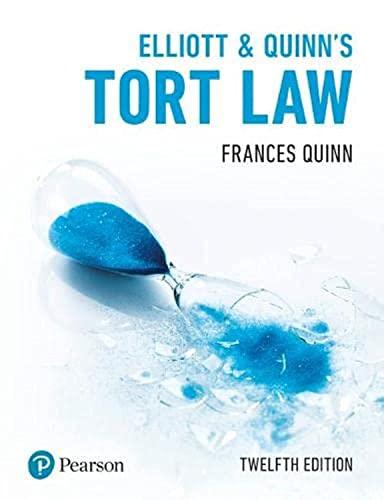Question
Question 1 and 2 are based on the following fact situation: The State of X enacted legislation that imposed a 10 p.m. driving curfew on
Question 1 and 2 are based on the following fact situation: The State of X enacted legislation that imposed a 10 p.m. driving curfew on all persons under eighteen years of age. The purpose of the legislation was to reduce the state's automobile accident rate. The statute also provided that parents of any minors who violated the curfew were to be held directly responsible for their behavior. The statute was to go into effect in 90 days. Before the legislation became effective, a 'concerned parent' group brought suit in federal court seeking to enjoin its enforcement.
In addition they sought a declaratory judgment that the regulation violated the 14th Amendment due process requirement of the United States Constitution.
Question 1:
The federal court is most likely to make this decision because the:
Select one:
A. Decision would be premature.
B. Doctrine of abstention may apply.
C. Parent group lacks standing.
D. Question is moot.
Question 2:
Assume there existed, at the time the curfew act was enacted in the State of X, a federal curfew statute restricting the use of interstate highways by minors after midnight. The 'Concerned Parent' group should argue that:
Select one:
A. The state has no authority to regulate interstate travel.
B. Neither state nor federal power to regulate commerce includes power to prohibit travel.
C. The doctrine of preemption invalidates the state legislation.
D. Federal legislation governs if an intrastate matter affects interstate commerce.
Step by Step Solution
There are 3 Steps involved in it
Step: 1

Get Instant Access to Expert-Tailored Solutions
See step-by-step solutions with expert insights and AI powered tools for academic success
Step: 2

Step: 3

Ace Your Homework with AI
Get the answers you need in no time with our AI-driven, step-by-step assistance
Get Started


